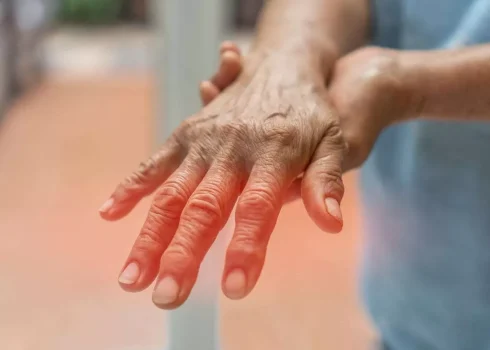
According to one study, about 25% of people who drink to intoxication don’t have hangovers at all. Experts break down the science behind six common hangover myths — and explain how alcohol affects your body. Sinusitis is the most common complication of persistent rhinitis. The sinuses are small, air-filled spaces inside the cheekbones and forehead. They make some mucus which drains into the nose through small channels. The causes of persistent rhinitis can be divided into allergic and non-allergic.
Are there any complications of persistent rhinitis?

This figure represents people whose symptoms are traceable to what the manufacturers made the product from and its production process, not the alcohol itself. Just as grapes can become wine, table fruit that becomes too ripe might contain enough alcohol to cause a reaction in someone with an alcohol allergy. These range from heart and liver damage to a greater risk of certain cancers. For some people, alcohol can also make allergy symptoms worse. The first is that alcohol contains compounds that act as allergens. The most common of these compounds are sulfites, which are typically highest in beer, brown liquor, and cider.
- Examples of conditions that can cause alcohol intolerance or sensitivity are outlined below.
- Even a small amount of alcohol can trigger a severe reaction.
- A blood allergy test, also called a specific IgE test, is a powerful diagnostic tool that can pinpoint what allergen may be causing your symptoms.
- Common sulfites include potassium bisulfite or potassium metabisulfite.
Alcohol intolerance
Aldehyde dehydrogenase (ALDH2) is an enzyme that your body uses to digest alcohol. It turns alcohol into acetic acid, a main component of vinegar, in your liver. Some people have a variant in the gene that codes for ALDH2.
Health insights you can act on
- Two common symptoms are facial flushing, in which the skin on the face quickly turns red, and nasal congestion.
- The symptoms of histamine intolerance are similar to an allergic reaction.
- It also exposes you to acetaldehyde, a toxic byproduct produced when your body metabolizes alcohol, that can damage your cells and tissues.
- See the separate leaflet called Nasal polyps for more details.
- However, the severity of these symptoms may vary from person to person.
- The most likely explanation is that alcohol dilates blood vessels in the nose, which can cause irritation and lead to sneezing.
You are also more likely to develop allergic rhinitis if you already have asthma or eczema. A skin prick test should take place in a medical setting in case of a severe allergic reaction. The healthcare professional uses a lancet to pierce a person’s skin and apply a small amount of the suspected allergen to see if it causes a reaction.

Allergy testing should always be done in a medical setting. In some cases, they might use an oral challenge test to diagnose an allergy or intolerance. In this procedure, they will ask you to consume a sample of your suspected trigger. Some people have an intolerance or sensitivity to sulfites. These compounds are often added to beer and wine to limit the growth of yeast and act as a preservative.


These headaches usually occur hours after a patient has stopped drinking, as their blood alcohol level returns to zero. While the cause of DAIH is unknown, researchers believe they are related to a drop in a neurotransmitter called serotonin, which regulates the body’s central pain control. When serotonin levels drop, pain signals are dysregulated, and people are more likely to experience painful conditions like headaches. If an allergy to an ingredient in alcohol is suspected, an allergy test may be recommended. A blood allergy test, also called a specific IgE test, is a powerful diagnostic tool that can pinpoint what allergen may be causing your symptoms.
What to know about alcohol allergies
Alcohol intolerance can cause sneezing after drinking alcohol immediate, uncomfortable reactions after you drink alcohol. The most common signs and symptoms are stuffy nose and skin flushing. For many people, wine is the drink that causes them to sneeze. This is likely because wine contains histamines, which trigger allergies. If you’re allergic to wine, you may notice that you sneeze more after drinking it. You need to use the spray each day to keep symptoms away.
Myth: All hangovers are the same.
In contrast, an alcohol allergy involves an immune system response and can be much more severe. If they suspect you have a true allergy to alcohol or another ingredient in alcoholic beverages, they will likely conduct allergy testing. The most common type of allergy testing is the skin prick test. During a skin prick test, your doctor will use a lancet to prick or scratch your skin.
- An allergy is a common cause but there are also non-allergic causes.
- During a skin prick test, your doctor will use a lancet to prick or scratch your skin.
- Side-effects or problems with steroid nasal sprays are rare (read the packet leaflet for details).
- And since it affects your genes, once you inherit it, you’re stuck with it.
- A hangover can be a mild form of alcohol withdrawal, according to the NIAAA.
- The healthcare professional uses a lancet to pierce a person’s skin and apply a small amount of the suspected allergen to see if it causes a reaction.
Sometimes it’s an alcohol allergy, not alcohol intolerance
You had a long week, and you opened that bottle of wine to help you relax — but instead you wound up with a stuffy nose you now have to deal with. It doesn’t happen to everyone, but those who do get congested after a glass or two know just how much of a buzzkill it can be. Sulfites interact with stomach acid to release an irritant gas called sulfur dioxide, which can cause airway irritation in susceptible individuals. Alcohol contains metabolites, which are substances produced during metabolism. This article is not intended to be a substitute for professional medical advice or diagnosis. Always seek the advice of your physician or other qualified health provider with any questions you may have regarding a medical condition.

